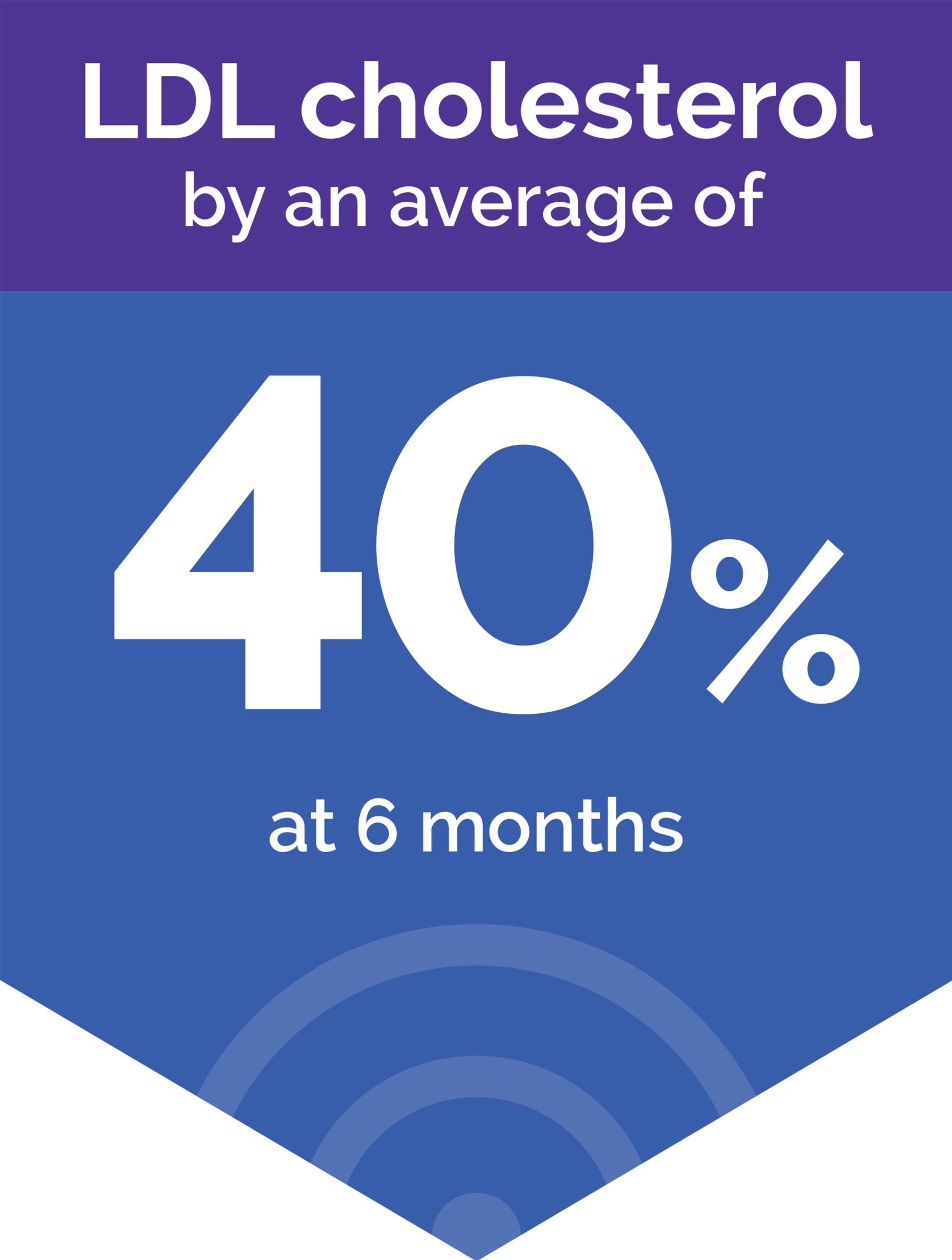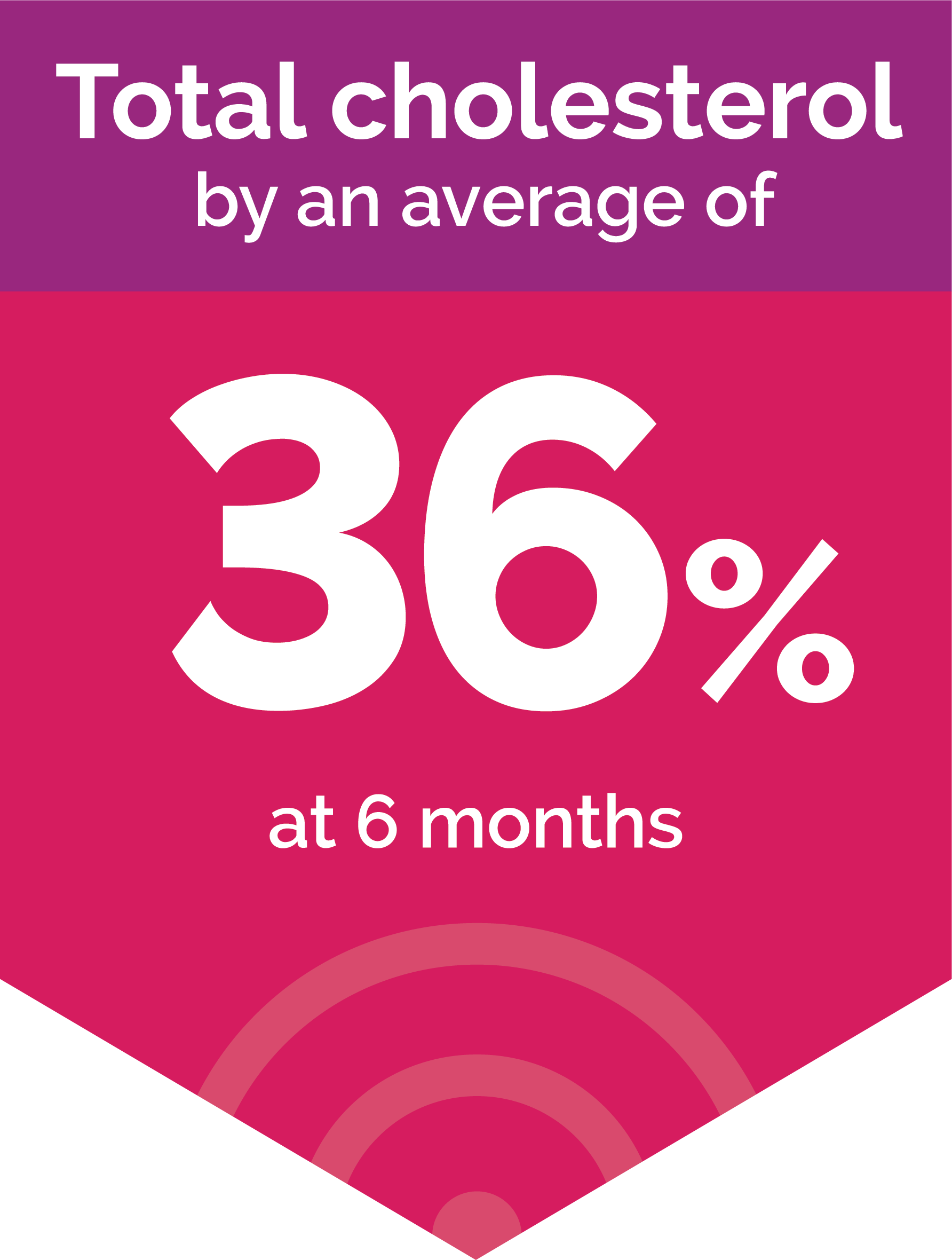
Why Juxtapid ?
Juxtapid® (lomitapide) capsules is a prescription medicine used along with diet and other lipid lowering treatments, including low-density lipoprotein (LDL) apheresis where available, in adults with homozygous familial hypercholesterolemia (HoFH) to reduce LDL (“bad”) cholesterol, total cholesterol, a protein that carries “bad” cholesterol in the blood (apolipoprotein B), and non-high-density lipoprotein cholesterol (non-HDL-C).
Studies have not been conducted to tell us whether Juxtapid can help prevent problems from high cholesterol, such as heart attack, stroke, death or other health problems.
How Can Juxtapid Help?
Because of how their livers work, people with HoFH often cannot lower their cholesterol to target levels using only traditional methods of lowering cholesterol, including diet and other cholesterol-lowering medications. Juxtapid works differently to help lower LDL cholesterol in people with HoFH.
Since your liver’s mechanism to remove cholesterol isn’t working properly, Juxtapid helps limit the amount of bad cholesterol your liver makes in the first place. That way, the body has less cholesterol to remove from the bloodstream.
Studies with Juxtapid
Juxtapid helps lower cholesterol in adults with HoFH. When taken together with other cholesterol-lowering treatments and a low-fat diet, Juxtapid may help get you closer to the goal set with your doctor.
In a study of 29 patients with HoFH who were already taking other medications to lower their cholesterol, adding Juxtapid reduced:

- and

Everyone in the study started on a low daily dose of 5 mg of Juxtapid. The dose was increased over time, based on individual safety and side effects, up to a maximum dose of 60 mg.
The results seen in the first 6 months of the study were also maintained over the next 12 months. Learn more about what to expect with Juxtapid here.
Important Safety Information
Juxtapid may cause serious side effects, including:
Liver Problems
- Juxtapid can cause liver problems such as increased liver enzymes or increased fat in the liver. For this reason, your doctor should do blood tests to check your liver before you start Juxtapid and while you are taking Juxtapid (especially if your dose is increased). If your tests show signs of liver problems, your doctor may lower your dose of Juxtapid or stop it altogether.
- You should tell your doctor if you have had liver problems in the past, including liver problems while taking other medicines.
- Stomach problems can also be a symptom of liver problems. Tell your doctor right away if you have nausea; vomiting or stomach pain that gets worse, does not go away, or changes; fever; yellowing of your eyes or skin; feeling more tired than usual; or having flu-like symptoms while taking Juxtapid because these may be signs of liver problems.
- Do not drink more than 1 alcoholic drink per day while taking Juxtapid.
Harm to your unborn baby:
- Do not take Juxtapid if you are pregnant, think you may be pregnant, or are planning to become pregnant.
- You should have a negative pregnancy test result before you can start on Juxtapid. Use effective birth control while taking Juxtapid. If you become pregnant while taking Juxtapid, stop taking Juxtapid and call your doctor right away.
You should not take Juxtapid if you:
- Are taking medications known as moderate o r strong CYP3A4 inhibitors (for example, certain medications used to treat bacterial, fungal, or viral infections, as well as certain medications used to treat depression, high blood pressure, or angina). These medications may affect how your body breaks down Juxtapid.
- Have moderate to severe liver problems or active liver disease, including abnormal liver function tests.
Other possible side effects of Juxtapid:
- The most common side effects of Juxtapid are stomach problems including diarrhea, nausea, vomiting, cramps/pain, indigestion, and/or gas. You may be able to reduce your chance of stomach problems by following an eating plan consisting of less than 20% of calories from fat.
- Juxtapid makes it harder for some fat-soluble nutrients, such as vitamin E and fatty acids, to get into your body. Take supplements that contain fat-soluble vitamins each day while you take Juxtapid. Ask your doctor, nurse, or dietitian how to take them.
Tell your doctor if you have any side effect that bothers you or that does not go away. Stop taking Juxtapid and tell your doctor if you have severe diarrhea, especially if you also have lightheadedness, decreased urine output, or tiredness. These are not all the possible side effects of Juxtapid. For more information, speak with your doctor or pharmacist.
Tell your doctor about all the medicines you take, including prescription and non-prescription medicines, vitamins, and herbal supplements. Juxtapid may affect the way other medicines work, and other medicines may affect how Juxtapid works.
